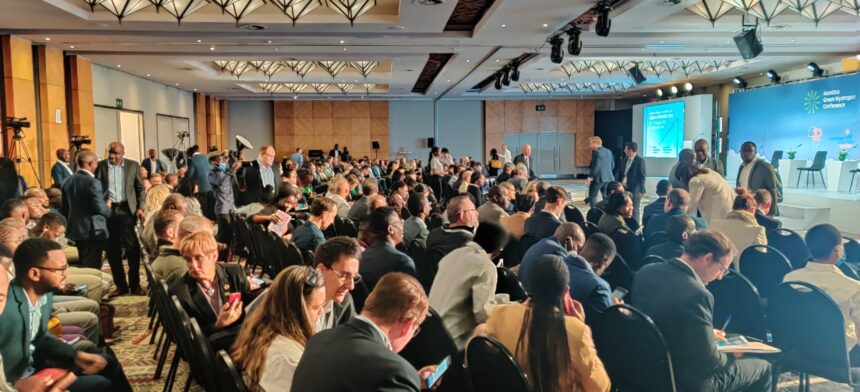Staff Reporter
The Economic Association of Namibia (EAN) in partnership with the Namibia Investment Promotion and Development Board (NIPDB) and the Hanns Seidel Foundation (HSF), are organising a large-scale Green Hydrogen Conference. The aim is to bring together key role-players in Namibia’s green hydrogen ecosystem to exchange views on the potential, opportunities and risks of establishing a green hydrogen industry in the country.
The conference is slated for the 16 and 17 August 2022 in Windhoek and is expected to be officially opened by Prime Minister, Saara Kuugongelwa-Amadhila, while mines and energy minister, Tom Alweendo, is scheduled to address the conference on the second day.
The two-day conference will bring together about 300 national and international participants with the aim of deliberating on a wide range of issues, including; the mandatory Legal and Regulatory Framework; economics of Green Hydrogen; Green hydrogen markets and Namibia’s market preparedness; Namibia’s infrastructure and other resources; human resources; and Foreign Direct Investment (FDI), Finance and Public-Private collaboration.
In order to ensure deliberations at
the conference are turned into action,
key resolutions are expected to form part of the strategic roadmap for both the public and private sector, on how the country can best benefit from investments in green hydrogen.
The conference will have a strong focus on proposing ideas and strategies
to ensure investments in the sector will not create an enclave around green hydrogen production sites, but that investments will lead to the development of an integrated industrial base with backward and forward linkages to the rest of the economy. This, in turn, is expected to create sustainable jobs and contribute to the social welfare of Namibians.
Countries around the world have identified green hydrogen as a vital source of energy in efforts to decarbonise their industries and steer their economies towards a green energy future.
Namibia has been identified as having great potential to develop a strong green hydrogen industry and become a key player in global energy markets. The country’s abundant sunshine and wind conditions, combined with long coastlines and vast seawater, sets the country apart, providing the necessary natural resources required to develop a sustainable green hydrogen industrial base to drive socio-economic growth.
In appointing a preferred bidder to develop the country’s first high-capacity hydrogen project in the south of the country, Namibia has taken the first steps to turn the potential into reality, leapfrogging the rest of the region towards becoming a green energy champion.
“It is however crucial that a broad spectrum of issues is addressed upfront, that critical regulatory framework, vital infrastructure and other resource requirements are identified for the country to succeed in developing an integrated industry that will turn the expected investments in this area into broad-based, inclusive economic growth. Developing this capacity will require comprehensive consultations with key players in Namibia’s economy, both in the public and private sectors. Input will further be required from civil society, community groups and academia,” read a statement from the conference organisers.


